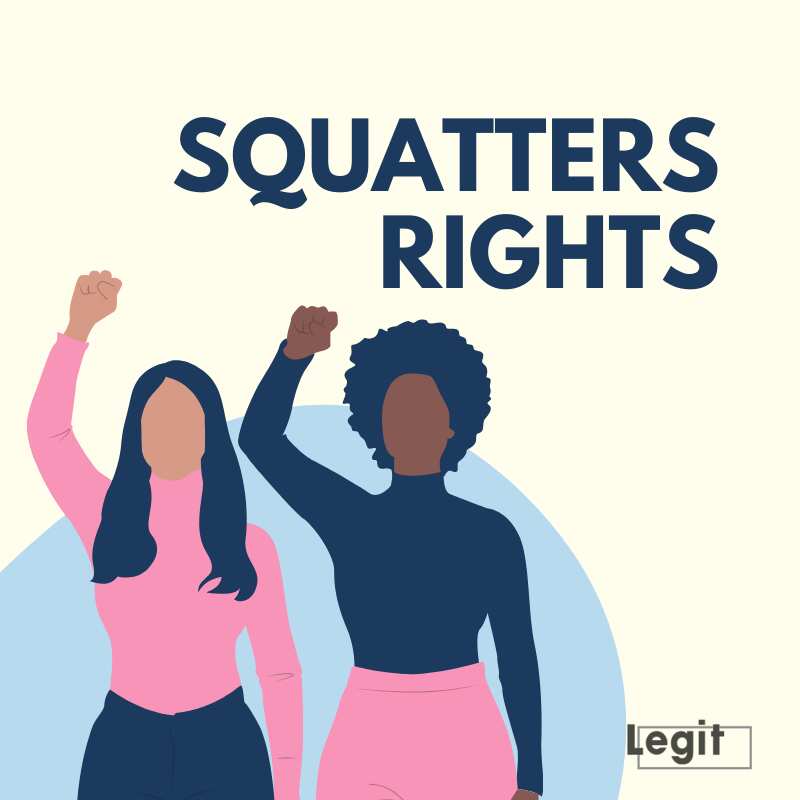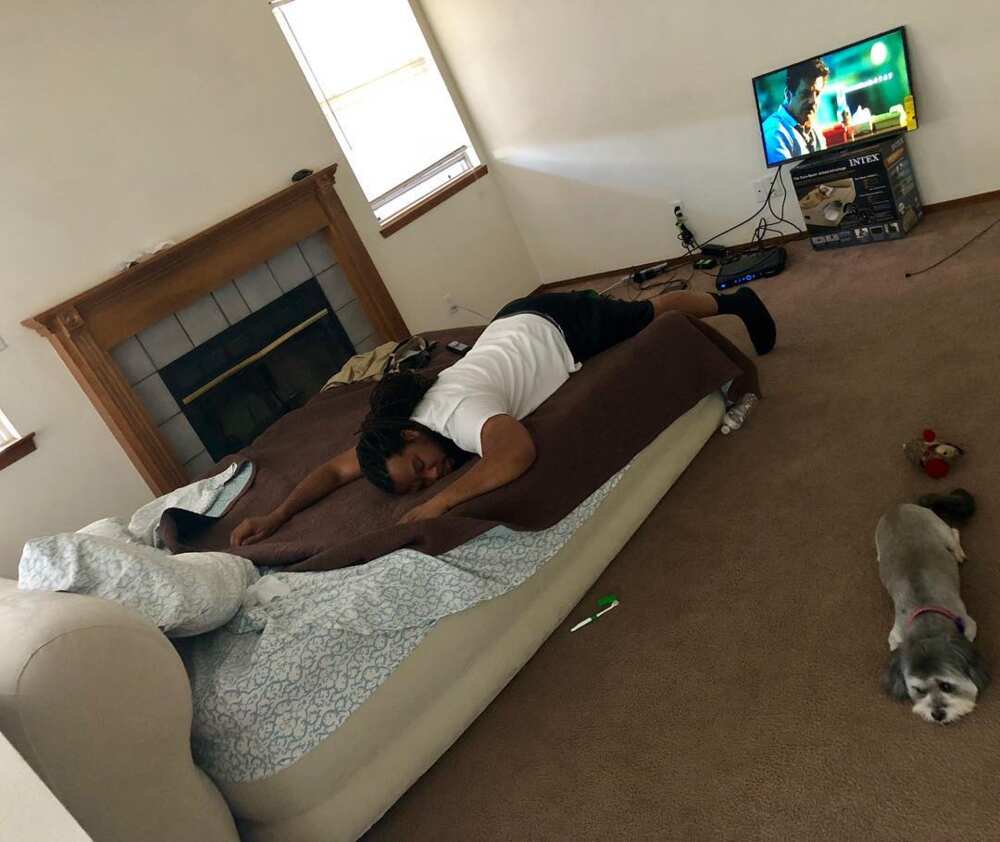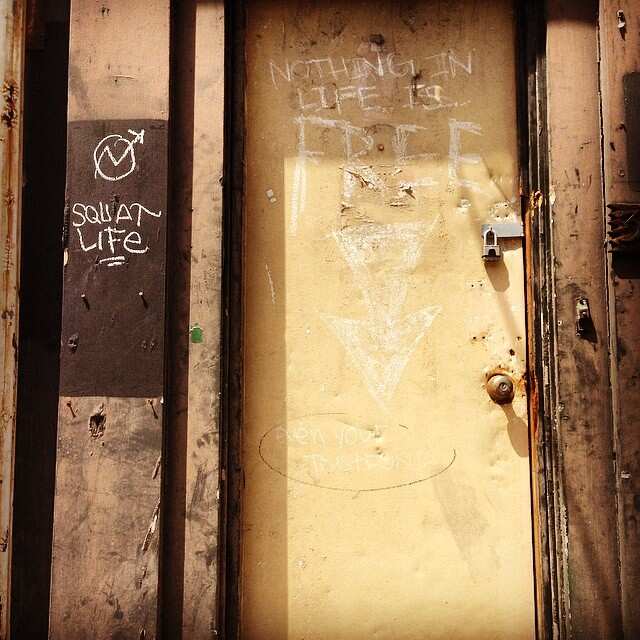What are squatters rights and how do they work?
Squatter rights are legal allowances offered to a person to use another person's property without forced eviction by the owner. In essence, a squatter has the right to claim ownership of the land he or she has been living on continuously for a specified period. Do you know how squatters rights work?

Source: Original
Who are squatters? They are people who occupy a particular piece of property without legal ownership to it. They can obtain the land or property if the owner does not claim it or inspect it over a couple of years. It is therefore quite vital for a landlord to understand squatting laws and when they apply.
Definitions
What are squatters rights? Before you learn about squatter's rights and how and when they apply, here are key definitions:
- A trespasser- someone who enters someone's property without the owner's knowledge. Usually, such a person does not have any bill written to their name. One could not be referred to as a trespasser if they had an initial lease contract with the owner.
- A holdover tenant- it is someone who initially signed a contract of occupancy with the property owner. They, however, stayed in the property after the expiration of their lease/ period stated in the agreement.

Read also
Selfish neighbour who covered his fruit tree with net to stop people from taking it exposed (photos)
What is the difference between a squatter, a trespasser, and a holdover tenant?
The difference between them, even though almost minimal, is a distinct one. A squatter enters a vacant property, takes possession of it, and even puts utilities to their name. Sometimes, they also have forged documents showing their rights to be in the property, especially when the property is unregistered.
Trespassers often break-in/force entry into a property. They do not add any utilities to their name or own any. They usually lack any evidence of an agreement with the owner.
A holdover tenant (sometimes referred to as 'tenants at sufferance') cannot be referred to as a squatter as they hold evidence of a lease contract. The owner can decide to let them stay by making them pay a monthly fee. In such a case, they become a month-to-month tenant.
The main difference between a squatter and a holdover tenant is that the former does not pay rent or inform the landlord/owner about their habitation.
How squatters establish tenancy
It is not uncommon to find squatters in your property, especially when you are on holiday or when you are not using it. Even when you discover them, you cannot send them away without taking legal action.
This is because some of them may claim they have a right to be there. In most cases, they use some of the silliest ways to prove tenancy.
They can show evidence of a mail(s) addressed to them while at the property or a utility bill. Some of them can also show evidence of improving the place by fixing sinks, broken windows,e.t.c.
Is squatting illegal?
Squatting is using someone's property without permission. In most cases, squatting in residential buildings is illegal. It would attract a fine or a jail term of up to six months.
In England, while trespassing non-residential buildings is not restricted, some crimes would attract legal intervention. They include:
- Causing damage to the property and its components
- Stealing or unwarranted use of utilities of the property; these may include electricity or water
- Refusing to leave even after instructions from the court.
- In Scotland, any trespass in private property is illegal.

Source: Instagram
Squatters rights
What are the laws on squatters rights? They are legal names that refer to 'Adverse Possession.' A squatter is granted ownership of someone's else property after continuous occupation for a given period. For each state or country, the requirements to be met for a squatter's rights to be approved are different.
Why do squatters have rights? Like any other individual, squatters have rights. They are meant to protect them, especially against threats by landowners who show no legal right to the property. They also enhance the efficient use of a property.
Why do squatter's rights exist? As mentioned, they exist to guard the interest of squatters. Every state or country has its own squatters law.
How do you get squatters rights? Generally, for successful adverse possession, certain factors have to be considered. They include:
- Elements- These are the legal conditions that have to be met.
- Occupation length- This is the period in which the property has been continuously occupied. Depending on the state/country, it can range from 3 -30 years.
- Property taxes- Some states have the requirement of clearance of all the claimed property taxes
- Color of Title- For some states, a document that shows claim to the property even though not legally standing on its own is required. (an example is a will/deed with a missing signature)
Elements
For adverse possession to be considered, the required elements are
- Hostile - means 'doing so without permission.' A squatter is hostile if they:
- Live on the land/ property without knowing who the official owner is
- Know who the property owner is, but still, go on to occupy it
- Actual - this means 'assuming ownership.' A squatter can prove this element by showing evidence of the improvements they made on the property. Officials have to be convinced that he/she took steps to treat the property as their own.
- Open and notorious - this one means 'being known by everyone.' It is not concealed that the squatter was occupying the property.
- Exclusive - means 'not being shared'. A squatter has to prove that he/she was on the property alone and did not share it with the owner or another stranger. The squatter is also not allowed to use it on behalf of someone else.
- Continuous - means 'without interruption'. This element requires that the squatter occupies the property without moving to any other place in the specified period. If they left and came back, only the period they were there uninterrupted will be considered.
Occupation length
As stated above, the occupation period varies from state to state. For instance, a squatter in New York City can obtain ownership of the land if they occupy it for ten years. If the owner finds out before the ten years, then they are evicted and they can no longer claim the title.
In England/Wales, the period is ten years. For an unregistered property, it is 12 years. Here is a list of some of the states and their considered occupation length:
Less than ten years
- Alaska
- Arkansas
- California
- Florida
- Lowa
- Montana
- Nevada
- Utah
- Washington
10 years
- Wyoming
- West Virginia
- South Carolina
- Oregon
- New York
- New Mexico
- Nebraska
- Missouri
- Mississippi
- Indiana
15 years
- Virginia
- Vermont
- Kansas
- Connecticut
- Oklahoma
- Minnesota
20 years
- Delaware
- Hawaii
- Maine
- Maryland
- Massachusetts
- New Hampshire
- North Carolina
Above 20 years
- Rhode Island
- Pennsylvania
- Ohio
- New Jersey
Paying taxes
In some states, this element requires the squatter to pay taxes for the property for them to be considered for adverse ownership. The period needed for payment also varies between states. For instance, in Washington, the time frame is seven years.

Source: Instagram
Color of Title
If one owns a property but lacks one or more legal documents required for back up, they are said to have Color of Title.
In some states, the Color of Title reduces the occupation length. In Georgia, its evidence reduces the occupation of length from twenty years down to 7 years.
Places that allow adverse possession
Below is a list of places and states that allow adverse possession and how it is done:
England and Wales
Squatters can assume ownership of a property if they occupy it continuously for ten years or 12 years if unregistered. They have to show proof that they were there throughout the period and that they do not have a contractual agreement with the owner.
For squatters who would like to acquire rights to the property, they can inform the land registry. The owner is given up to 65 days to either accept or object the application. If objected, the squatter is ordered to vacate the place.
Alaska
There are two ways adverse possession can be done. The first one requires the squatter to have a property deed and have an occupation length of seven years. The other one requires them to have paid taxes to all claims for 10 years.
Arizona
In this state, there are three ways that possession can be done:
- Firstly, the squatter needs to own a property deed and pay taxes to all claims for three or more years. If the property is in the city lot, the period is five years.
- Secondly, if they have the deed to the property for five years, they can be considered for possession
- Lastly, if one builds across your property line and you do not take action for ten years, then they own that part of the property.
Arkansas
In Arkansas, a deed to the property and payment of claims for seven years is needed.
Colorado
All that is needed for consideration is a property deed for eighteen years. Additionally, if the squatter paid taxes for seven years, then they have a right of possession

Source: Instagram
California
For possession, a deed of property for five years is required.
Washington
If the squatter occupies the property for 7 years, pays taxes and owns a Color of Title, then they have a right of possession.
Illinois
In this state, adverse possession can be considered if one occupies the land for 20 years. For seven years, they have to pay taxes or hold a Color of Title
Indiana
For the Indiana state, all the elements have to be met and a minimum occupation length of 10 years
Iowa
In Iowa, the length of occupation is between 3 to 5 years. The state also allows a squatter to obtain ownership if they pay taxes and have a property of deed for 12 months. If the obligations are not met, then they have to stay for five years.
If the owner discovers and files a notice to prevent acquisition, the squatter is informed and given a copy of the notice. The court then takes over the matter, and according to evidence brought up, it may favor any of the parties.
Kentucky
All the stated elements must be met. The squatter must have been on the property for fifteen years and have Color of Title for seven years
In cases where any form of disability prevents the owner from discovering the possession, he /she is allowed to challenge the acquisition within three years.
How can squatters be evicted?
The process of eviction also varies from place to place. It is not an easy process, as it mostly ends up in court and takes a lot of time. For instance;
In England and Wales
Once the owner discovers a trespasser, they are required to apply for an Interim Possession Order (IPO) within 28 days. The court will then give instructions for the squatter to leave within 24 hours. If they refuse to leave or return within twelve months, they can be charged and sentenced to a jail term.
If the owner does not process the IPO within the 28 days, they will be required to apply for the ownership first, then proceed to evict the trespasser. The process might, however, take longer than expected.
Scotland
Compared to England and Wales, the procedure in Scotland is a bit complicated and lengthy. A property owner is supposed to submit a Summary Cause Action to their local sheriff court. The sheriff clerk will then issue a return date (the date which the squatter can apply for defense) and a calling date(the second hearing date)
Before the second hearing, the sheriff is allowed to summon the trespasser by leaving the notice on the entrance. On the calling date, the sheriff can declare the trespasser to be evicted immediately or after 14 days.
How to protect your property against squatters and their squatter's rights
One can protect their land, houses, or property from occupancy by a squatter and adverse possession in several ways. They include:
- Hire a property management company. This is mostly necessary if you own properties in different states and have commitments that might hinder you from checking on them frequently. The company will assist you in their management and watching over them.
- Install alarms and cameras in the property. Signs that keep away trespassers can also be used. These measures will prevent strangers from claiming ownership. Once you discover the squatters, ensure you inform the relevant authorities immediately as you will have tangible evidence then.
- Have the intruders sign a lease. This will hinder permanent possession in the future. Breaching of the contract will give you an upper hand in court when they threaten to use their squatter rights against you.
- Hire a competent lawyer who will ensure that your chances of regaining your property are high.
Squatter rights give individuals the right to acquire property that they have no legal ownership of. Property owners should, therefore, ensure they have a comprehensive understanding of the rights to ensure that they are not used against them.
Source: Legit.ng












